As disturbing as it might be for humans, mother cats can sometimes kill their kittens.
They may do this because they feel that something is wrong with their offspring, because of stress or fear, or a hormonal imbalance.
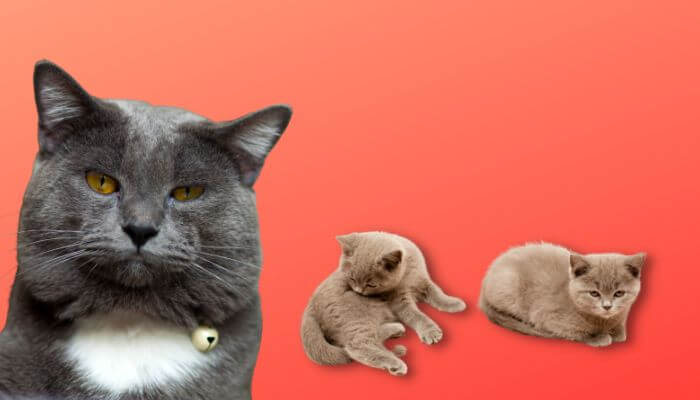
Contents
Why Has My Cat Killed Her Kittens?
Most mother cats have strong maternal instincts that make them protect their kittens as much as possible.
However, although rare, there are a few reasons why a cat may choose to kill their kittens:
1. Disease Control
Mother cats can easily tell which of their kittens are healthy and which ones are not.
In case one of their offspring might be carrying a disease, potentially one that could put the health of the rest of the litter in danger, the mother will decide to eliminate that risk altogether and put an end to the sick kitten’s life.
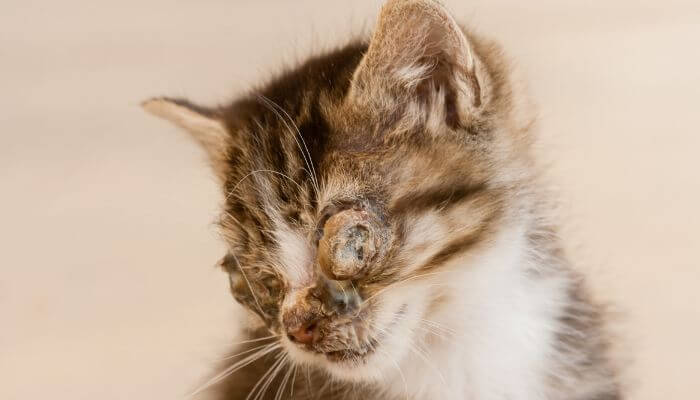
Sometimes, if the kitten is really debilitated and has a very low chance of survival anyway, the mother might make the decision in order to save her energy and resources.
That way, she is able to feed the rest of the kittens.
2. Congenital Defects
The queen is also capable of telling if one of the kittens is deformed or just unfit to survive on their own.
As strange and cruel as it may be for humans, historically, all animals had to be ruthless in their breeding so that some of these genes wouldn’t be transmitted to their descendants.
A challenged or physically impaired kitten already has smaller chances of reaching adulthood.
So, in this situation, the mother would choose to help the offspring with the best chances of survival.
3. They Don’t Recognise The Scent Of Their Kitten
This is the precise reason why people whose cats are about to give birth are commonly advised to avoid touching the mother or her litter at all costs.
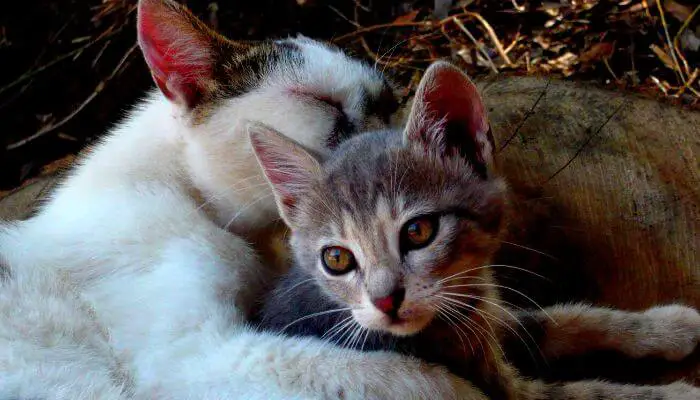
If you make the mistake of handling the kittens and changing their scent before the queen has managed to mark them as their own (by grooming), you are effectively putting their life at risk.
That doesn’t mean that they will necessarily engage in an attack on that kitten, but that they might choose to completely ignore it and, therefore, not feed it at all.
Since feeding is so important for newborn kittens, they can die in less than 24 hours if that happens.
4. She May Mistake A Kitten For Their Placenta
If the cat hasn’t yet severed the umbilical cords of their offspring, they could mistake one of the kittens, especially an underdeveloped one, for a part of their placenta.
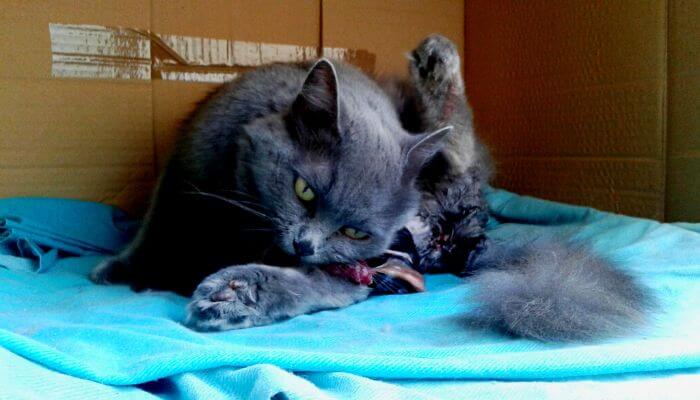
Most animals, including cats, eat their own placentas after giving birth.
For one, they do this because the placenta provides them with nutrients after a long and difficult labour.
Secondly, in the wild, they used to do it because otherwise, it could alert larger predators of their presence in the area.
5. Lack Of Prolactin Hormone
Prolactin is one of the most important hormones that a mother cat’s body needs to secrete in order for her to be able to give birth and then take care of the kittens.
If the cat has managed to give birth, but there is an insufficient amount of prolactin in her bloodstream, she might simply fail to recognize any of the kittens as being her offspring.
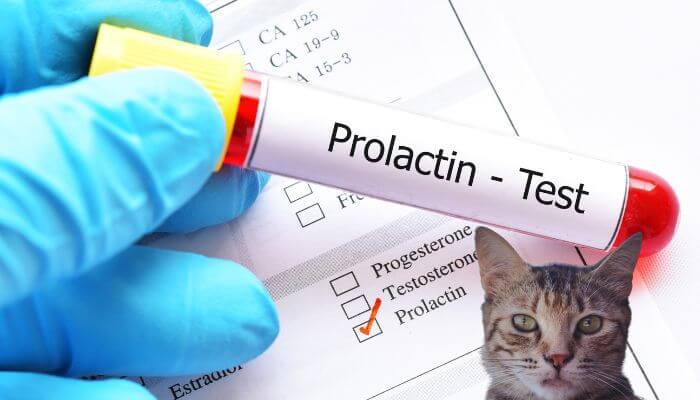
This situation seems to be more common with cats that haven’t experienced pregnancy before.
It is difficult, if not impossible, for a pet owner to tell when there’s a prolactin imbalance in their cat’s body.
More often than not, upon noticing the lack of a maternal instinct, cat guardians take it upon themselves to take care of the kittens.
Unfortunately, the mother rarely becomes involved in the process.
In fact, if enough prolactin isn’t secreted at the right time, meaning following the birth of the kittens, it will never be sufficient for the cat to develop a maternal instinct.
6. Perceived Danger
If the mother cat is all of a sudden under extreme stress or fear, she might kill the kittens so that no one else does.
That might sound illogical because humans, as a species, put the health and safety of their offspring above that of their own, most of the time.
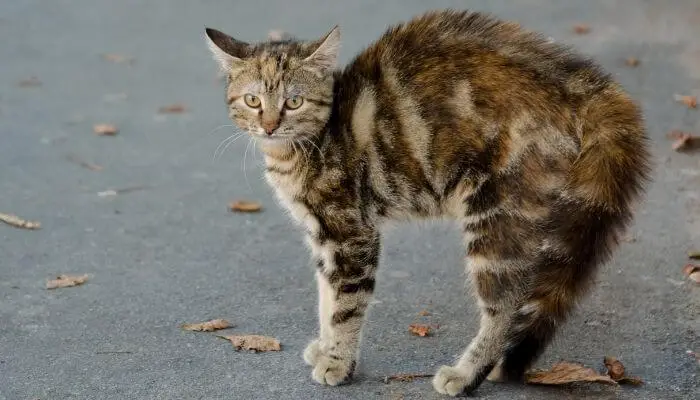
But for cats, things can be very different.
If they can tell that there is a threat nearby, such as a larger animal that might attack at any point, they will make this decision instead of wasting time on carrying the kittens to a safer place.
On the other hand, they might manage to transport some of the kittens to a different spot, but may choose to kill one or two to ensure their own survival, so that they can care for the rest of the litter.
7. Too Many Kittens
A very large litter can be problematic for everyone involved in the process, whether that be the kittens or the mother.
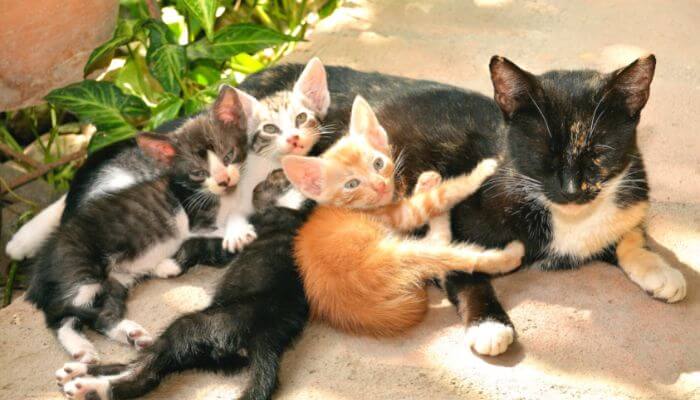
Too many kittens means that the mother will struggle to get enough food to ensure her milk production for every one of their offspring.
Furthermore, it also means that all of the little ones are going to inflict some form of damage onto the queen’s mammary glands, to the point that some can even make her develop mastitis.
If she has lost a lot of energy because of the labour or difficult birth, she might eat the smallest kitten, the one that is likely to always be left behind.
That will allow her to concentrate on the kittens that have the best chances of survival.
Do Cats Eat Their Kittens?
Unfortunately, some do.
Whether it happens because the cat is effectively ravenous following the birth or because she wants to remove any trace of her own and her litter’s presence in the area, cannibalism can indeed occur in mother cats.
It’s typically uncommon for the queen to eat all of the kittens, also because it would be impossible for her to ingest all of them.
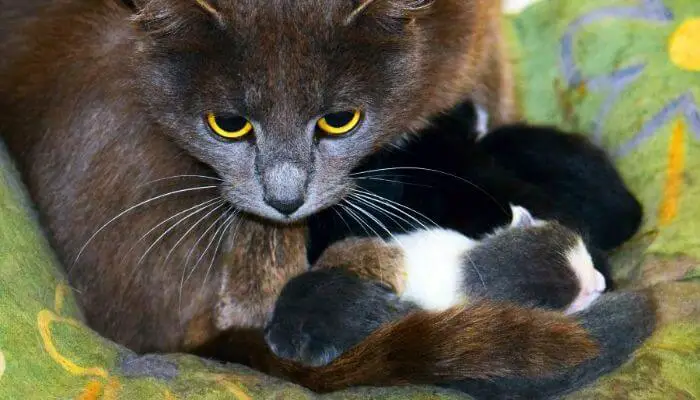
Most cats have litters of at least 2-3 kittens, which means that they would find it very difficult to eat all of their offspring.
However, sick kittens or those that are born impaired and as such, have the lowest chances of survival, may be eaten by their mothers, especially if they have to run and hide in another place.
In the wild, some cats live in colonies where the rest of the cat population might be able to fend off the attack of a predator at least for a few days after they have given birth.
However, some cats are solitary animals. As such, they have no other cat’s assistance when it comes to protecting their litter.
So their best way to do this would be to remove any sign of their birth and change the location of their nursing spot.
If that involves killing and eating one of her kittens, she will do it.
Can Mother Cats Squash Their Kittens?
In some cases, yes.
If the cat doesn’t have enough space, if they want to protect their kittens, or if they are completely inexperienced when it comes to caring for their litter, they might accidentally squash some of their offspring.
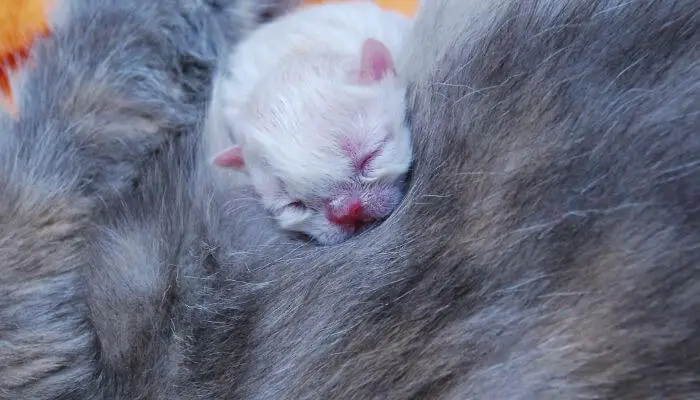
Many cats might lay on their kittens by accident and then realise, change their position, and then place them in a different spot.
So, while it often doesn’t happen on purpose, some mother cats might squash one of their kittens.
How Do You Stop Your Cat From Killing or Eating Her Kittens?
While touching the cat’s nursing space, complete with the blankets and the kittens themselves, is a no-go, that doesn’t mean that you shouldn’t pay attention to the cat’s behaviour.
This can be particularly important if your cat has never given birth before, so you do not know how she will react to having kittens.
You should only interfere when you see strange behaviours such as the cat being unusually aggressive or rough with one of the kittens and actually trying to ‘take a bite’ out of them or attack their jugular vein area.
In that case, remove the kitten while you are wearing a pair of gloves, so that you don’t accidentally touch the rest of the blankets and/or the rest of the kittens.
You will need to feed the kitten cat milk formula and make sure that you do this once every couple of hours or so.
Raising motherless kittens is quite challenging.
You might have to get an incubator and try to stimulate the kitten’s pooping instinct every day, not to mention weigh the little one every day to make sure that they are putting on weight.
As previously mentioned, it’s quite uncommon for mother cats to want to kill all of their offspring, so chances are that the rest of the kittens will be able to grow next to their mother.
Will The Father Kill Its Kittens?
No.
Male cats rarely have any particular interest in their offspring, as strange as that might seem to us.
It is assumed that some male cats can tell that their kittens are their own, so they will not kill or eat them for that reason.
However, other male cats might try to kill the kittens especially if they are interested in mating with the queen.
As you can imagine, while they are nursing, mother cats have zero interest in breeding, especially in the first few days after they’ve given birth.
So, while the father of the kittens might not try to kill them, another suitor might.
Resources:
The Social Lives of Free-Ranging Cats, Kristyn R. Vitale, 2022

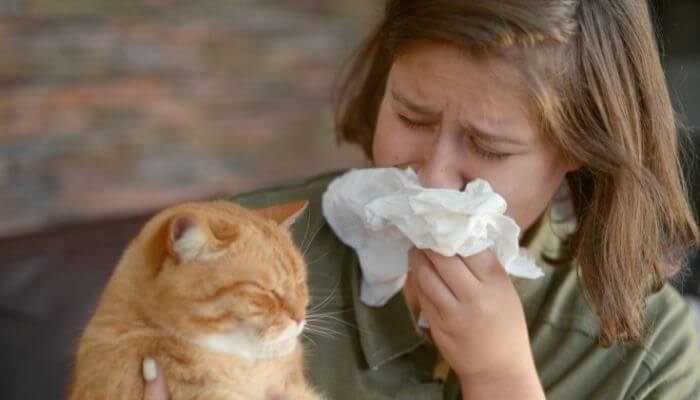
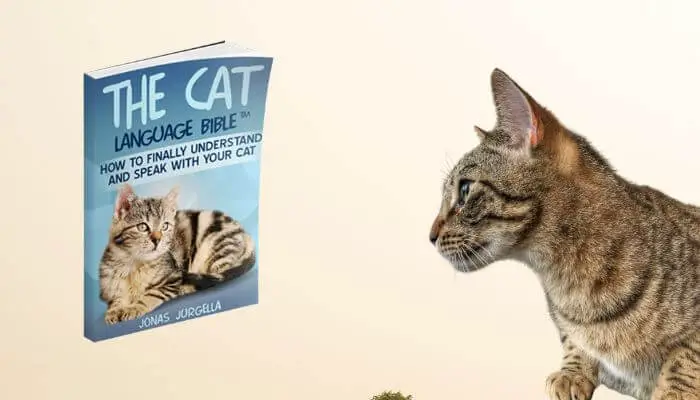
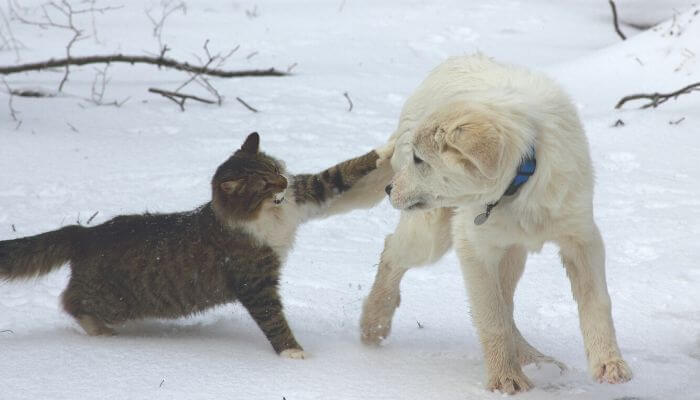
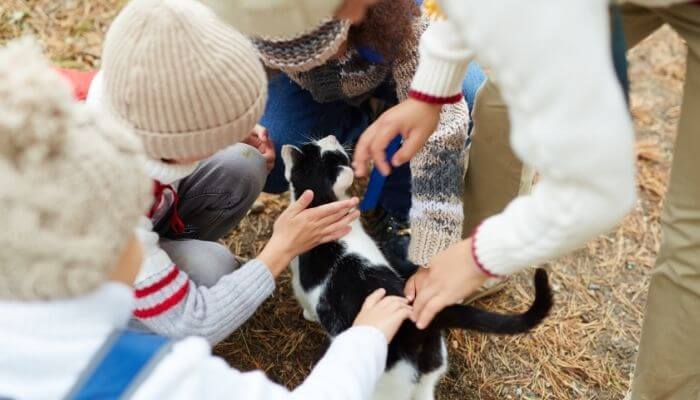
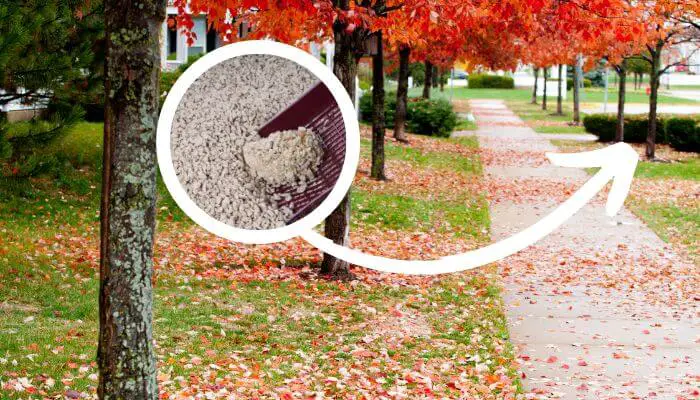

Leave a Comment